Inside Miami’s $10M deal with Centner Academy that beat out public school’s expansion plan
Paula Garver waited four years to get her daughter into iPrep Academy, an academically rigorous Miami public school so small and so popular that thousands of parents hope to win a spot through the school’s yearly lottery system.
“It’s so coveted,” Garver said. “… Everybody wants in.”
Local planning officials have long been aware of the pressing need for more classroom space at iPrep. But a plan to increase student capacity by expanding the downtown Miami school on public land — a proposal led by Miami-Dade County Public Schools that was years in the making — was sidelined two years ago when city officials instead inked a contract with wealthy private school operators.
The city’s five commissioners voted for the deal in 2022, allowing the private school to occupy a prime piece of real estate in Miami’s urban core without appraising its true value. The city’s no-bid resolution allowed the private school’s owners, David and Leila Centner, to build a “sports dome” on the publicly owned parcel, which is across the street from their namesake Centner Academy and a half-mile walk from iPrep.
Since its founding, the city agency that shepherded the negotiations has set out to collaborate with the public school system to ensure sufficient classroom space for a growing population in the neighborhood. Instead, a Miami Herald analysis found that the proposal to expand public education opportunities at iPrep was set aside in favor of a deal that benefits a private school.
To compare the two plans, the Herald dug into years-old records outlining two competing visions for the land. The analysis revealed how momentum to relocate and expand a public school in need of more classroom space was abandoned in favor of the private school run by the Centners – whose political contributions play a key role in a corruption case that rocked City Hall.
The private school deal is central to the state’s corruption case against former Miami Commissioner Alex Díaz de la Portilla, who sponsored the Centner Academy proposition in front of the City Commission, using his influence as chairman of the city agency involved in the negotiations to push for a unanimous vote, telling his colleagues: “I want it done today.”
READ MORE: Miami Commissioner Díaz de la Portilla arrested on bribery, money laundering charges
Prosecutors allege the Centners funneled $245,000 through their lobbyist to secure Díaz de la Portilla’s support for the project. Díaz de la Portilla, who was charged with money laundering and bribery, has pleaded not guilty; the Centners were not charged in the case and deny any wrongdoing.
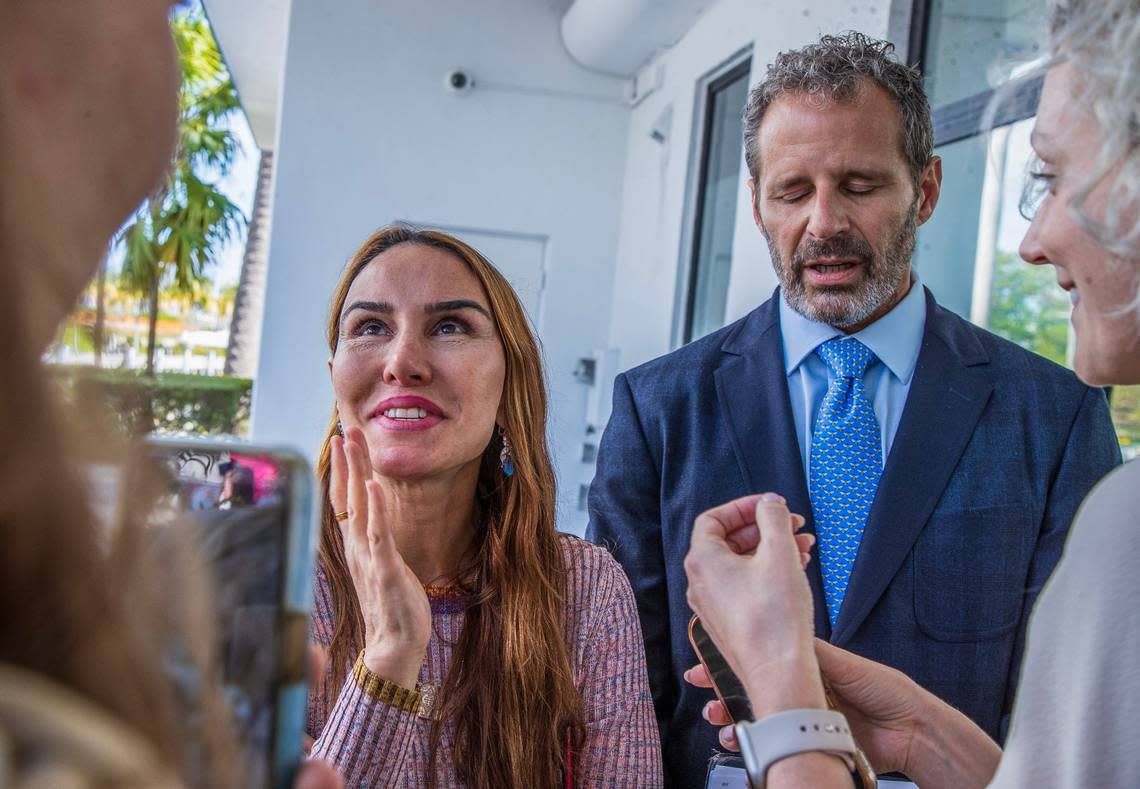
On Thursday, the City Commission — which includes two new members who ran on anti-corruption platforms — will have a chance to revoke the city’s contract with the Centners in a vote that could serve as a litmus test for the commission’s attitude toward allegations of corruption.
Many iPrep parents, and even school district officials, say they were blindsided by the way the public school plan was replaced with the private school deal. Garver, the parent who waited four years to get her daughter into iPrep, said she was “devastated” when she recently learned there was a previous plan that would have created a new iPrep building.
If anything improper happened that led to the Centner contract, “then that should be started all over,” she said.
‘That’s what government is for’
The now-dead public school plan was the result of years of collaboration between Miami-Dade County Public Schools and Miami’s Omni Community Redevelopment Agency (CRA), a taxpayer-financed agency whose mission is to reduce “slum and blight” in the city’s Omni neighborhood, just south of Wynwood. The agency was created in 1987 to fund economic development and public infrastructure projects like the iPrep expansion.
“This is what we’re supposed to do as a government entity,” Omni CRA Interim Executive Director Isiaa Jones told the Miami Herald. “We’re supposed to be able to forecast the increased population and their needs and provide the services for that.”
“That’s what government is for,” she added.
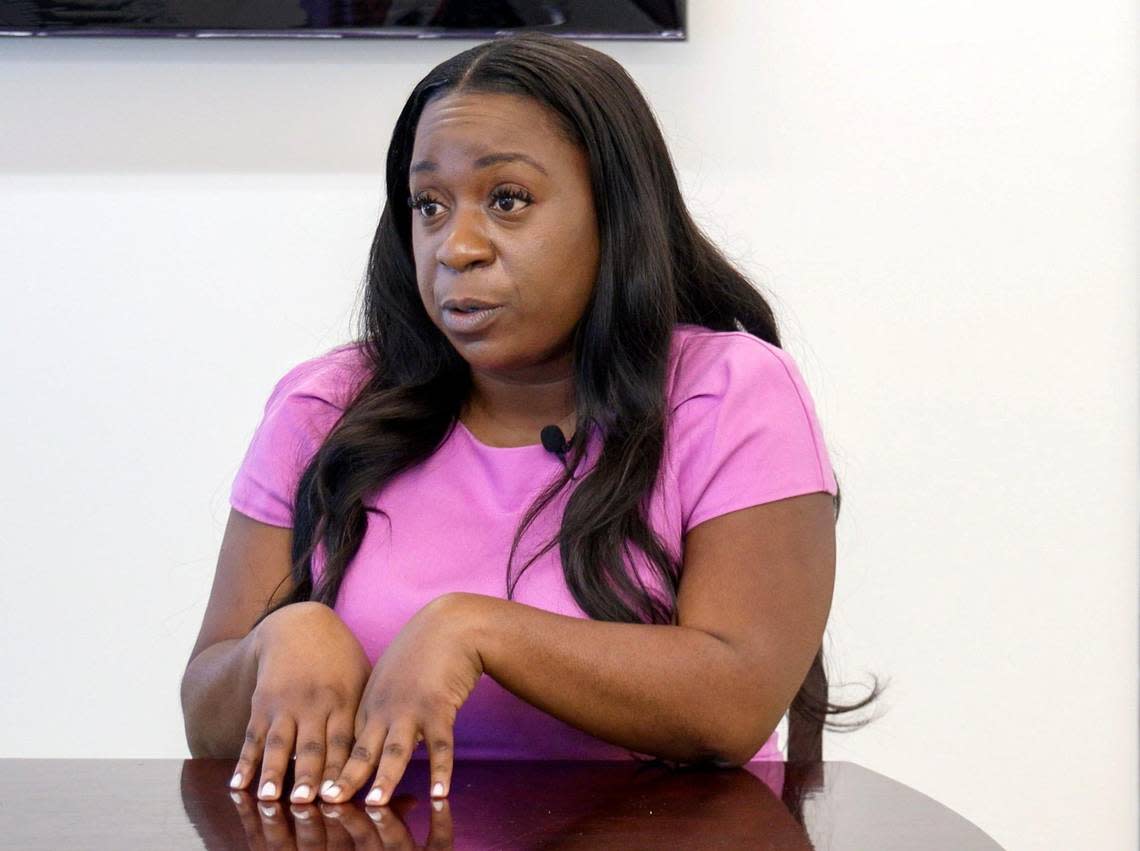
City commissioners take turns acting as chairperson of the agency, which is run by a full-time director. Jones, who previously worked in the City Attorney’s Office, has headed the agency since October, following the arrest of Díaz de la Portilla, who served as chairman of the Omni CRA during stints in 2020, 2022 and 2023.
Emails and other city records show city planners and school district officials discussing the iPrep proposal as early as 2017.
The plan entailed constructing a new iPrep building with twice the number of student seats, as well as workforce housing, on the city-owned piece of property known as Biscayne Park — one of the largest remaining undeveloped tracts of land in Miami’s urban core.
Parents at iPrep Academy, a pre-K to grade 12 “top-performing, award-winning” public magnet school, point to the lottery admissions system as evidence they need more space. For the 2023-24 school year, the school district said it received over 3,200 applications for iPrep, which has about 800 students.
Centner Academy, which also teaches pre-K to grade 12, charges yearly tuition ranging from $17,000 to $36,500, depending on the grade, according to its website. However, of the 333 students who attend, David Centner said 112 have received a combined $1.3 million in scholarships and financial aid. He added that the school provides subsidized housing to 45 teachers and staff members.
The private school’s supporters have said that the Centners’ planned sports dome will be a benefit to the community at large, providing safe fitness opportunities and state-of-the-art facilities to many Miamians — not just those affiliated with the school. Under the existing contract, the general public will be able to access the facility on a part-time basis.
Speaking at the City Commission meeting in January, Nikola Adamkova, who described herself as a single mother, said she does not feel safe taking her 9-year-old son to the park alone in the morning.
“The opportunity that the Centner family is giving to our children here is amazing to keep them away from the streets, to give them the sports life that we want, regardless of the weather,” Adamkova said.
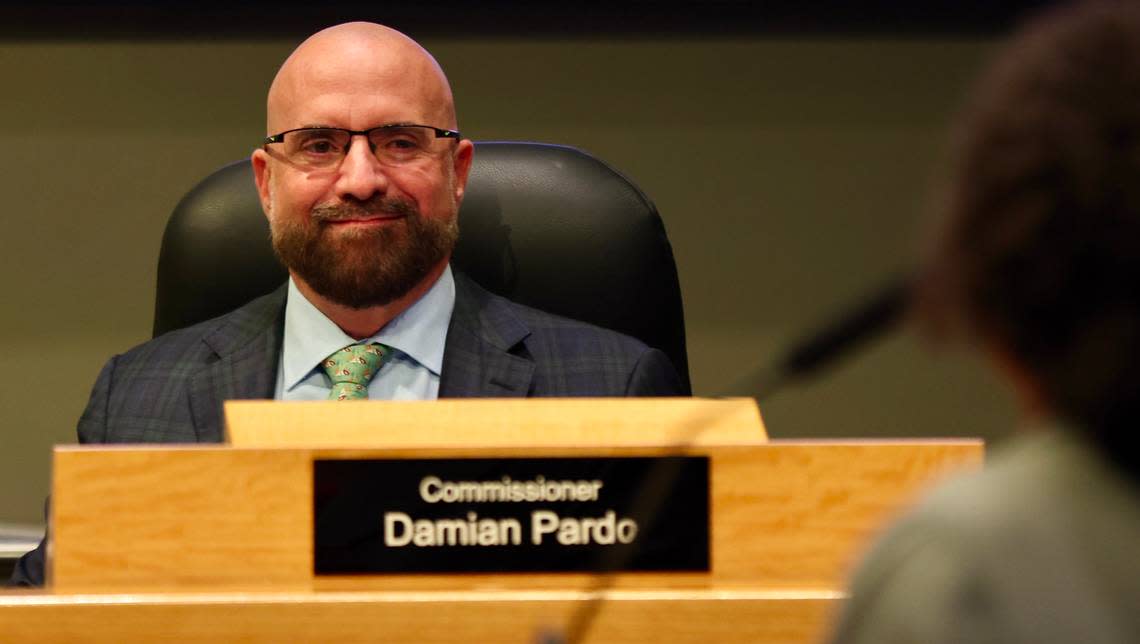
Despite those kinds of sentiments, Damian Pardo, a freshman city commissioner and current chairman of the Omni CRA, is in favor of revoking the existing Centner contract. While he’s not opposed to working with the Centners going forward, he believes the current agreement cannot stand.
“I think when this is explained fully, I don’t see anyone in my mind that would oppose,” Pardo said about the iPrep proposal. “You’re talking about a public school, public land, public interests, and public mission — aligned. That’s very strong, in my view.”
But overturning the Centner deal will require four-fifths approval at a time when the city’s five elected officials have struggled to even approve a budget. Nevertheless, Pardo is undeterred, saying “anything’s possible.”
Despite the allegations against Díaz de la Portilla, the Centners think their agreement should remain intact, citing the numerous city and elected officials who signed off on the deal.
“Clearly one person and any alleged wrongdoing of his could not have been an outsized factor in the decision making process,” David Centner said in an email, referring to Díaz de la Portilla. “Many individuals within so many City departments were involved in these decisions, and by revoking the deal you bring into question the integrity and competence of the numerous people that were involved along the way.”
Existing vision
The Miami City Commission on April 28, 2022, voted to allow the Centners to use the land for 10 years in exchange for a $10 million investment in the form of a recreational facility with playing fields and courts, built at no cost to the city. Some amount of public access to the facility must be maintained under the agreement.
The contract the city signed outlines few restrictions on the use of the space, allowing the Centners to host 12 three-day-long special events per year, as well as operate a farmer’s market, a concession stand, tennis courts, basketball courts and a soccer field. The only explicit restriction in the contract is for “adult entertainment or promotion of illicit activities.”
The contract calls for all revenues from activity on the property to be split 50/50 between the city and Centners, except for money made during the special events, defined as “parties, receptions, conferences, meetings, socials.” The Centners must pay the city 25% of all gross revenue from special events.
David Centner declined to say how frequently he and his wife plan to host special events, describe the nature of those events, or say whether they will be free and open to the public.
“We’re not even thinking about this right now,” Centner said in an email to the Herald. “The most important thing is [to] get it built so that residents can use it for sports activities.”

He left the door open for the possibility of hosting professional sporting events, such as pickleball tournaments, saying he can “imagine many exciting uses for the sports dome that bring together the community for fun and enjoyment.” He added that the farmer’s market will include produce sourced from Regener8, the couple’s farm and retreat in the Redland.
The farm is part of an expanding Centner portfolio. Last month, the Centners spent $5.5 million on an 11,071-square-foot space located a half-mile from Biscayne Park. The retail space will be used for their new farm-to-table Regener8 Cafe, as well as for Centner Wellness, a spa company.
Since 2018, the Centners have contributed over $2 million to Republicans, including committees supporting Donald Trump, Robert F. Kennedy Jr. and former Congressman George Santos, according to the Federal Election Commission. In 2021, the couple hosted two in-person lectures with RFK Jr., who at the time was promoting his anti-vaccine group, Children’s Health Defense. Shortly thereafter, the Centners were propelled into the national spotlight when a video leaked of Leila Centner telling Centner Academy teachers that they could lose their jobs if they got the COVID-19 vaccine.
Asked about the planned vaccine policy for the sports dome, David Centner deferred to the city, which will maintain ownership of the land, saying it’s “not a decision for us to make.”
Politics aside, city commissioners are likely to consider whether the Centner deal is beneficial to taxpayers. But because the city never appraised the value of Biscayne Park before it entered into the contract with the Centners, according to Omni CRA officials, it’s “impossible to say” if that’s the case, Pardo said.
“We have no way of really knowing,” Pardo said. “And that’s why I think it’s important to open it up.”
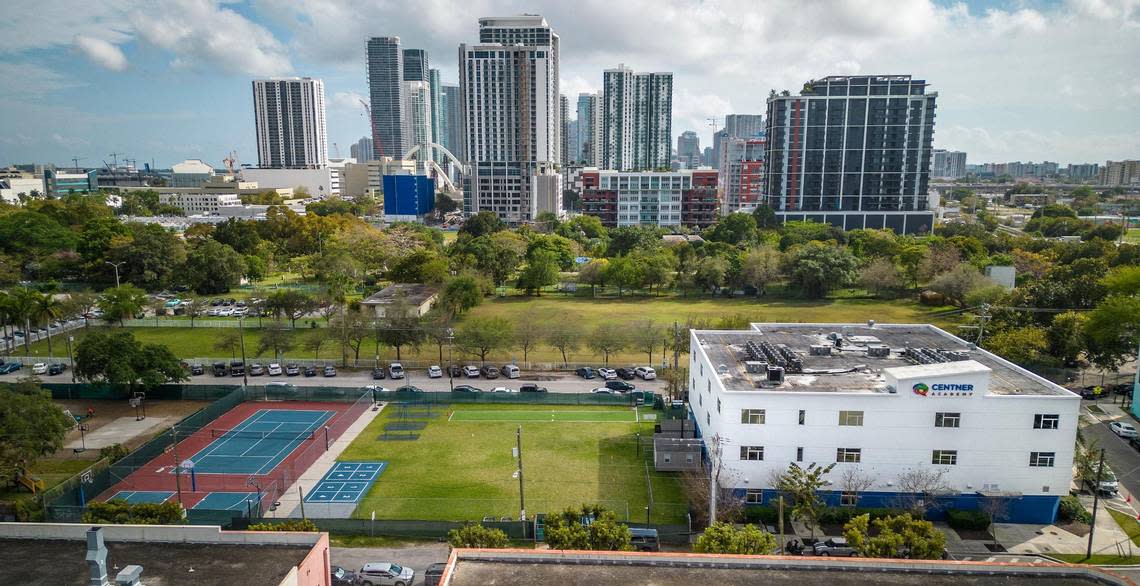
Asked how he determined the deal to be fair, David Centner said the $10 million investment, which he characterized as a donation, is “our best estimate as to the minimum it will cost to construct the proposed improvements at Biscayne Park.”
He said the Centners will be covering all construction costs and ongoing expenses and that the $10 million takes into account “all required infrastructure enhancements for electrical and sewage.”
Centner said the school district’s iPrep plan would “be a burden on residents in so many ways, including but not limited to taxpayer dollars, and the community at large will no longer have access to the land.”
However, internal planning documents obtained by the Herald show that relocating iPrep to Biscayne Park was a key component to a comprehensive plan that could have generated approximately $426 million in property tax revenue over the next 20 years from the development of about 10 acres of nearby land, most of which is owned by the school board. The private portions of each of those projects would have been taxed, said Jones, the Omni CRA’s interim director.
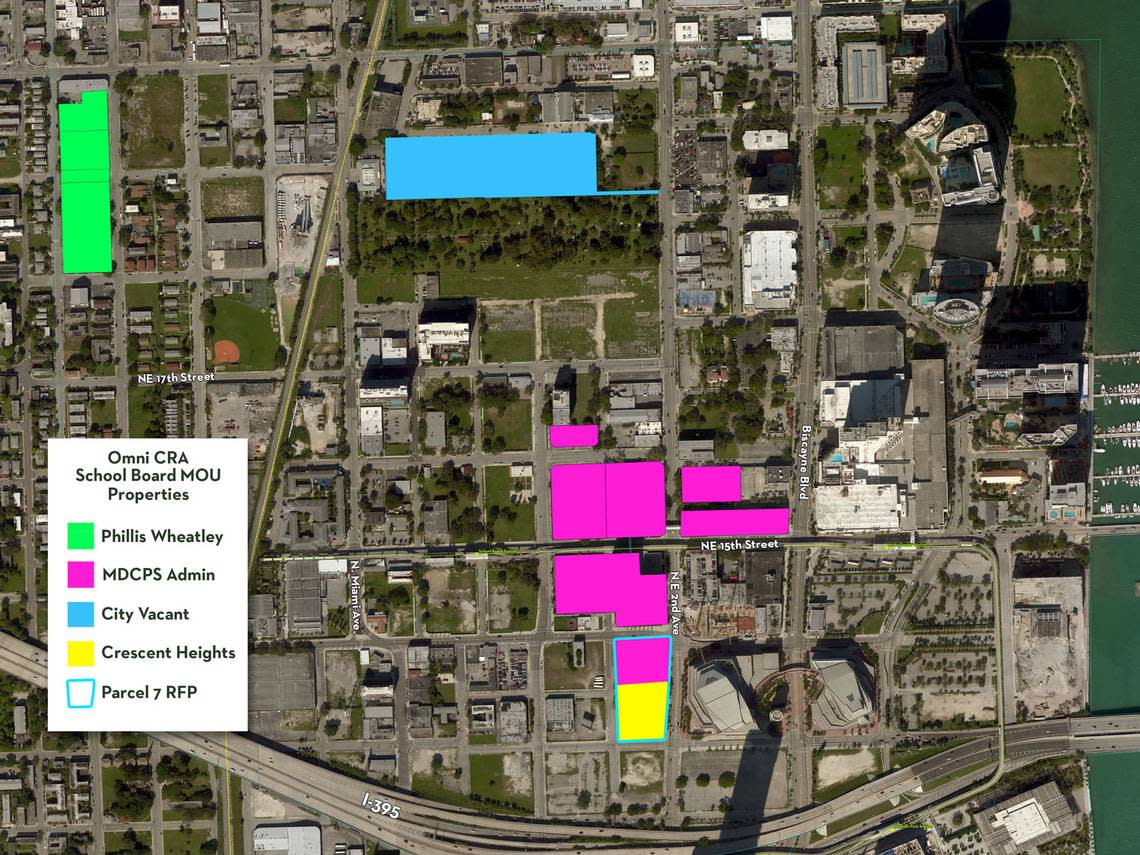
Anatomy of a deal
City Hall approval for the Centner deal went largely unnoticed. That’s partly because, on the same day, the City Commission also approved a deal for Miami Freedom Park, the city’s first Major League Soccer stadium.
Since then, some officials have suggested the Centners share some of Biscayne Park with the school district, after the iPrep plan started receiving more attention. But the Centners have said they are hamstrung by the city’s own zoning rules about “civic space.” The city’s decision to rezone Biscayne Park as a “civic space” prevents any housing being built there, including the type of workforce housing proposed in the iPrep plan.
“It’s a park, it’s a park, it’s a park,” David Centner told the Herald last month. “The commissioners in all their wisdom have converted this into a park. It cannot at this time be anything but a park.”
Centner added that changing the zoning could provoke “the ire of the community.”
While officials acknowledged that rezoning Biscayne Park to allow for a school and workforce housing is an obstacle, they said it’s not insurmountable.
“We control zoning as a city. That’s all I have to say about that,” said Anthony Balzebre, Pardo’s chief of staff.
Díaz de la Portilla said in an interview with the Herald that he never got any memos about the iPrep expansion during his tenure as a commissioner, which began in 2019, or as chairman of the Omni CRA, and that he never had any conversations with school district officials about moving the public school to Biscayne Park.
But the idea to develop Biscayne Park for an expanded iPrep and teacher housing is well-documented in reports, meeting notes and studies reviewed by the Herald, although the plan was conceptual and no official blueprints or renderings were created for the proposal.
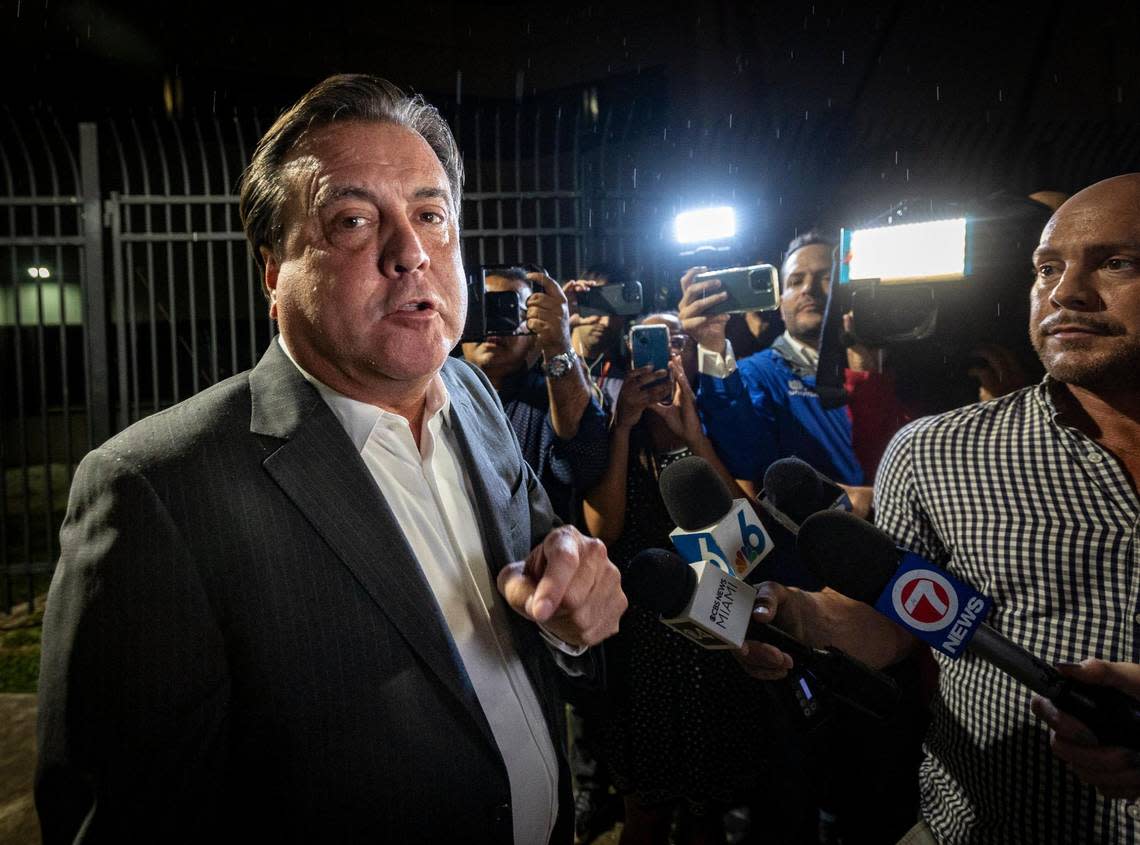
Miami-Dade County Public Schools also told the Herald that it had an initial briefing with Díaz de la Portilla on the matter in January of 2021 and that “efforts to communicate on the matter continued” until the Centner agreement was ultimately approved in April 2022.
During that city commission meeting, Díaz de la Portilla urged support from his fellow commissioners to approve the Centner deal, while promising to continue conversations with Miami-Dade County Public Schools about an iPrep extension at a different site. But the school district said in a statement that “there were no further discussions with Mr. Diaz de la Portilla about iPrep or Biscayne Park” after the April commission meeting.
Díaz de la Portilla maintains that he negotiated “a fantastic deal” that will refurbish a “derelict” property. “I thought at the time, and still think today, that Miami has to move forward in fixing its parks,” he said in a recent interview.
Is a supermajority possible?
Undoing the Centner contract requires a higher-than-usual threshold: four-fifths approval from the Miami City Commission.
Days before the vote, two commissioners confirmed they plan to vote to cancel the deal: Pardo and Miguel Angel Gabela.
Gabela, who is sponsoring Thursday’s proposal, told the Herald last week that he was swayed after learning more details about how the school district was sidelined.
He is also motivated by the deal’s association with corruption charges against Díaz de la Portilla.
“That leaves a bad taste in my mouth,” Gabela said.
The three other commissioners would not say how they planned to vote, though some expressed concerns about circumstances around the agreement.
When asked about the lack of an appraisal on the land before the April 2022 vote, Commissioner Joe Carollo said “there’s obviously a lot of things that could’ve been done, could’ve been better in the process.”
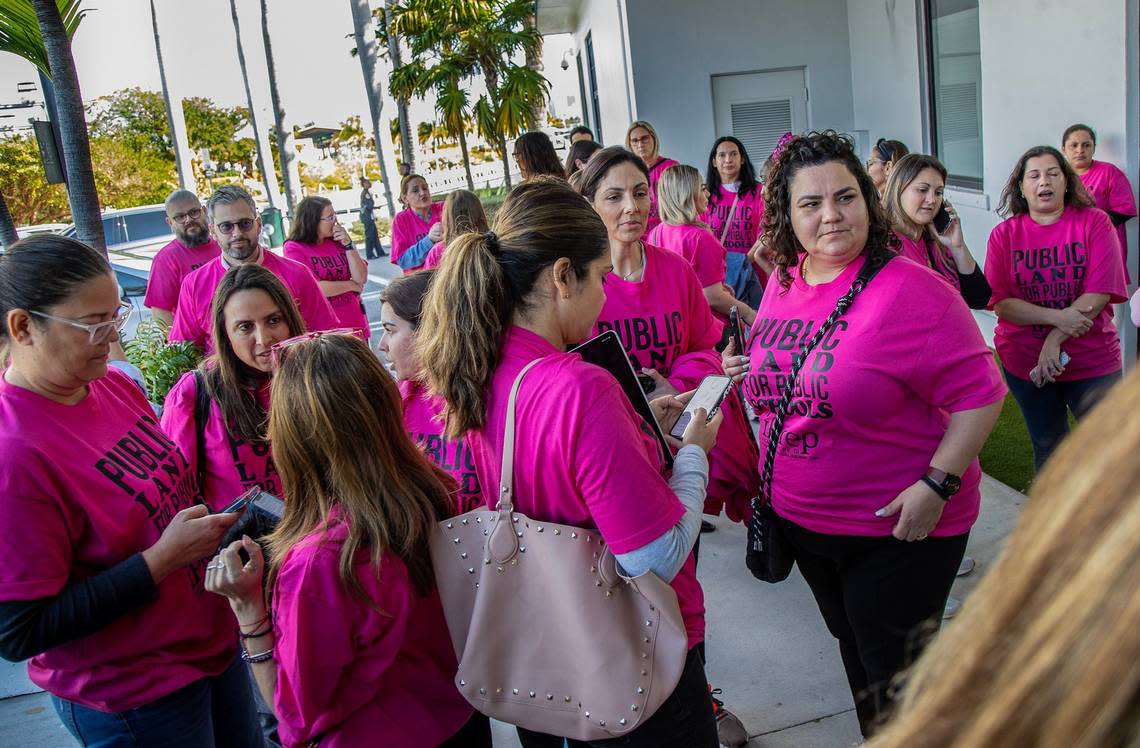
Commissioner Manolo Reyes echoed comments he made in April 2022. Back then, he noted that the city could lease the land or develop it into a tax-generating project instead of giving the Centners a license. He still voted to approve the agreement, saying the city was making a choice to forgo larger profits from the property.
“Definitely, there was an opportunity cost,” he said last week. “That’s what I’m thinking about. That’s why I want to see what the alternatives are.”
Christine King, the commission’s chairwoman, said on March 5 that while she did not know how she will vote, she has heard from both sides and has concerns about how the Centner plan plays into the city’s zoning requirement to maintain civic space.
Hours after meeting with three dozen constituents, including three iPrep parents, King said that while she supports public education and workforce housing, she’s unsure if the city should reverse course on the Centner deal.
King, who could be a deciding vote on the matter, said she’s going to Thursday’s meeting prepared to hear from both sides.
“I’d like to see if there could be a compromise between the two entities,” she said last week.
